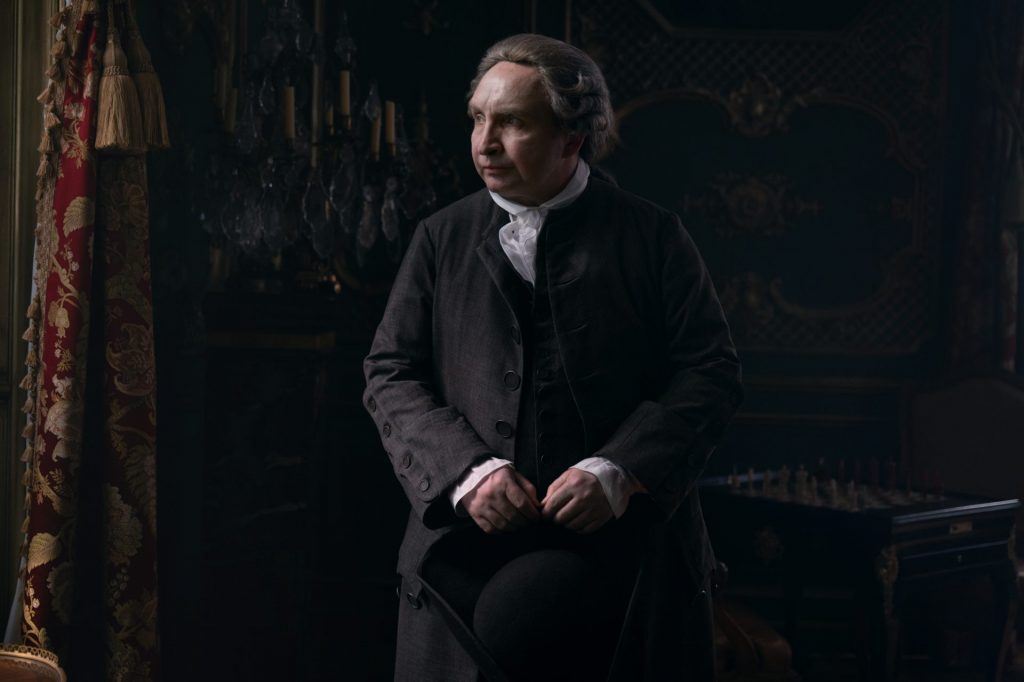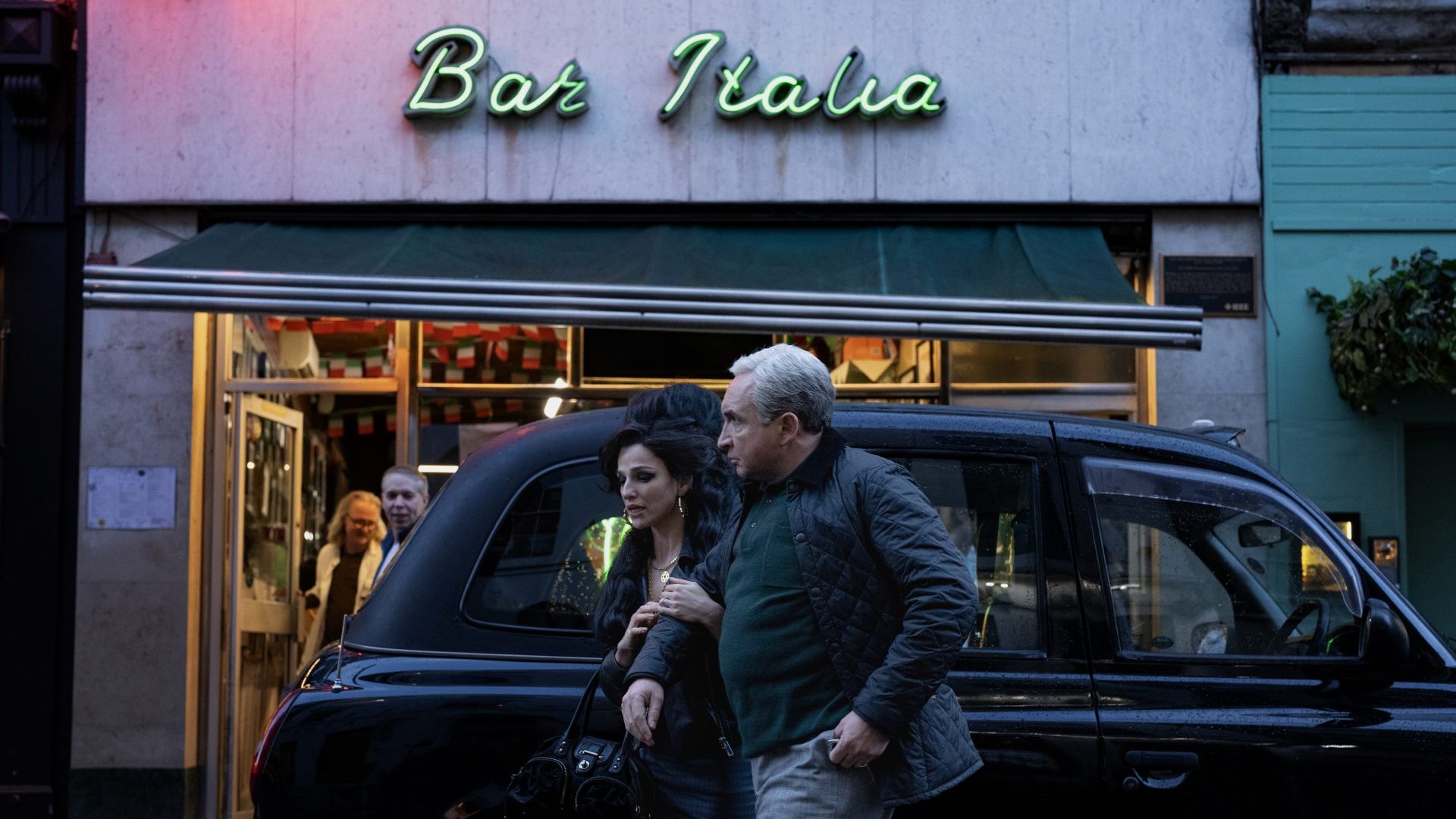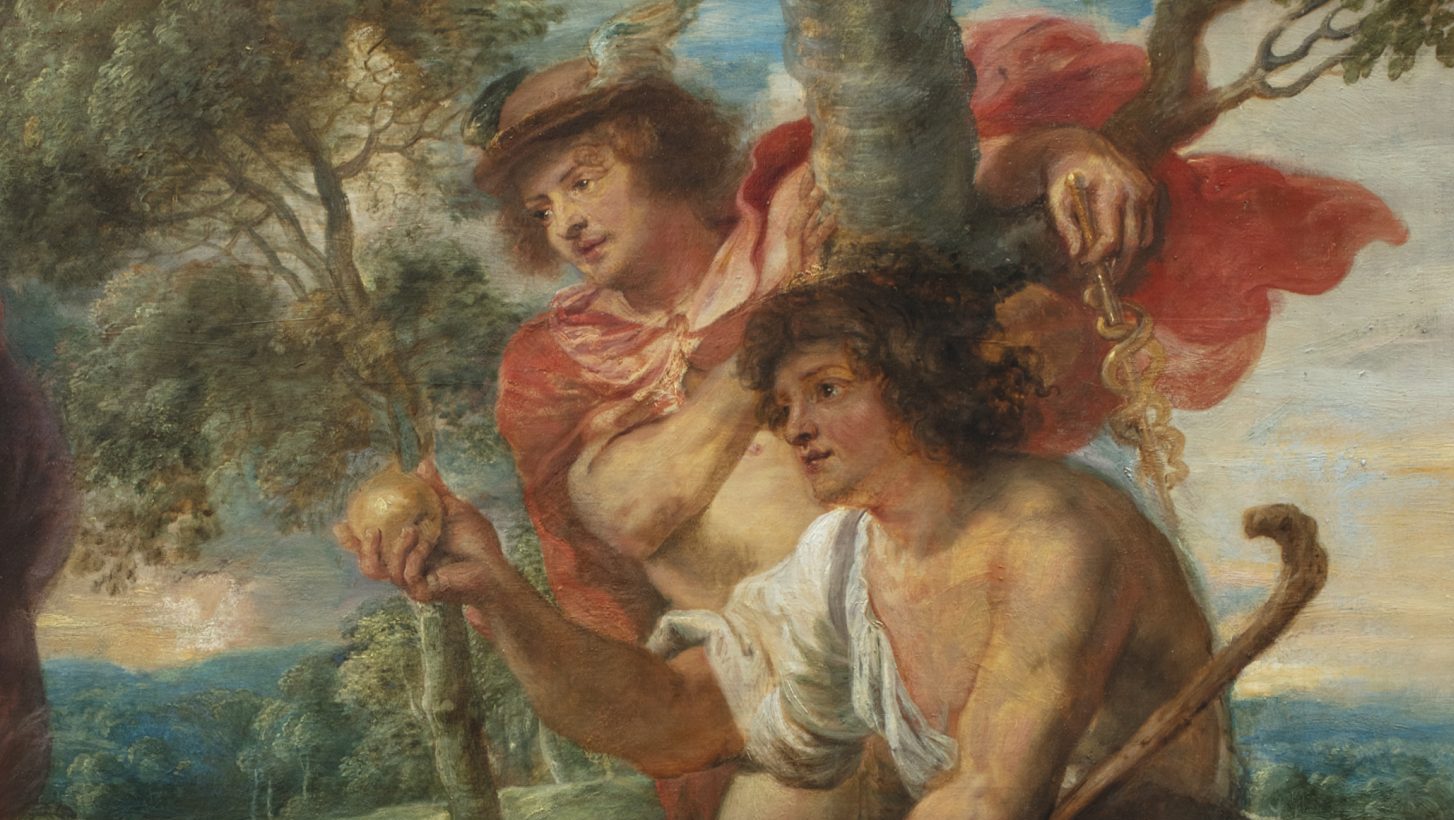Eddie Marsan is in a good mood. Not always, but today, a smile lights up that little round face.
But he can’t half look grumpy on screen. It’s a lugubrious look, a bit crumpled and slightly comic but always imbued with a relatable warmth, a face that’s seen him slowly but surely become one of the UK’s busiest and most cherished and most reliable character actors, notching up appearances in over 70 films and prestigious TV series.
He’s 55 now and from a grounding in the usual British TV staples of Grange Hill and The Bill, he’s worked his way into big American series such as Ray Donovan and into films such as Gangs of New York, V for Vendetta and Deadpool 2, balancing Hollywood with more local work such as Mike Leigh’s Vera Drake and Happy-Go-Lucky and a brilliant Pancks in BBC TV’s Little Dorrit and the recent BBC drama Ridley Road about East End fascists in the 1960s.
You don’t have to wait much for another memorable Eddie Marsan performance – like the proverbial London bus, two are coming along this week.
In an unlikely screen double, Eddie’s playing London cabbie Mitch Winehouse, father of singer Amy, in the feature film Back to Black; and US president John Adams, opposite Michael Douglas, in the lavish, Paris-set period drama Franklin, for Apple TV+. “That’s my schtick, isn’t it?” he grins. “Diversity, never getting pinned down.”
Not much to connect them, you would think at first, but I point out to him that both characters are, in fact, founding fathers. “Oh that’s good,” he chuckles. “And yes, I played Mitch quite simply as a father. A normal, London sad who loved his daughter deeply. That was the only way to do it.”
Mitch Winehouse is one of the most famous – or infamous – daddies in pop music. His daughter sang about him in her defiant, dangerous anthem Rehab, a lyric practically everyone knows: “I ain’t got the time and if my daddy thinks I’m fine/ He’s tried to make me go to rehab, but I won’t go, go, go”.
Eddie concedes the song now, maybe forever, puts Mitch in a tough position, casting him as some kind of villain, or at least someone who couldn’t save his daughter.
“But that song was written after the first attempt to get her to go,” says Eddie. “What most people don’t know is that the family tried to do that for her nine times. Nine interventions they attempted. But you couldn’t tell Amy to do anything, I don’t think.”
Casting Eddie Marsan as Mitch is a clever move by the film maker Sam Taylor-Johnson. It bestows instant likeability on the man, or at least relatability, which is where Marsan himself sees the essence of his job.
He met up with Mitch a few times and they talked about Stepney, where they both come from. Mitch told him how Amy would want to be driven around the old East End in her dad’s cab, to see the old spots, the remnants of her and her family’s proud Jewish roots.
“I just saw that he was a dad who had lost his daughter and how much that hurt,” says Eddie. “I think that when something like this happens to an icon, we have to remember she was a young girl, a great talent, but a young girl, and it’s very traumatic for society, for fans and admirers, everyone’s got an interest, an investment, but there’s a father here who lost a child.
“Society might want to blame someone and that’s the instant reaction, in the press, online and all that. But that’s very reductive, a reflex reaction to try and make sense of a death, but as actors, our job is always to reject the reductive narrative – that’s the very definition of bad acting. We have to find complexity and nuance.”
Anyone who’s followed Eddie Marsan on social media will appreciate that statement. Over the last few years, he’s become and outspoken tweeter, particularly on social issues, taking stances on Brexit and Corbyn and religion and homelessness and diversity.
It might be considered unusual, dangerous even, for an actor to be so vocal politically but Marsan is so confident and assured of his humanistic decency, that he never worries he will be on the wrong side because he won’t betray his own honestly-held beliefs. “Social media isn’t helpful though,” he muses. “There’s a lot of shouting and the trouble with it is that now people confuse winning an argument with solving a problem. That’s become the accepted way of our times – you can win an argument on Twitter, yes, but the real-life problem is still there, isn’t it?”
In fact, the last time I’d seen him was on stage at a London march against antisemitism, where he made an impassioned speech for tolerance based on his multi-cultural experiences growing up in Bethnal Green. To adapt the old saying: Eddie isn’t Jewish, but some of his best roles are.
I wrote a script for a heist movie a few years ago and the part of the Jewish London cabbie turned getaway driver was always intended for Eddie. He reminds me, in turn, that his first ever contact with Mitch Winehouse, and Amy, was at the studios of BBC London, where Eddie was coming as guest on my show to discuss his part in the comic film Sixty Six – playing the Jewish dad of a bar mitzvah boy whose big day now fell disastrously on the same day as England were playing in the 1966 World Cup Final.
Amy and Mitch – he always accompanied her – were guests in the previous slot where Amy had sung live and Eddie remembers chatting with them as they crossed paths on the way out.
It was October 2006 and Rehab was about to come out as the first single from Back to Black, the making of which album this new film is set around and, indeed, named after.
The film also charts Amy’s love affair with Blake Fielder Civil, the dishevelled lad many people also blame for feeding Amy drugs and for sponging off her fame and money until she married him. He’s played with great charm by Jack O’Connell. “Jack’s so good, you really understand why Amy fell for Blake,” says Eddie.
And that’s the thing with the film. It recreates the London of the 2000s with atmospheric excellence – the Good Mixer in Camden, the Soho streets, Ronnie Scott’s jazz club, the Camden music pubs where Amy drank and sang and tried out.
I felt an overwhelming sadness watching it, recalling my own nights on those streets, and the times watching Amy play (and drink) and regretting a talent we couldn’t hold on to. What could we have done differently, I wondered.
“Well, that’s the problem,” agrees Eddie. “My theory is that we’ve adopted a narrative that Amy’s death must have been someone’s fault because we don’t like the sound of a world where no matter how good parents we are, our children can die of addiction.
“The enemy wasn’t Mitch or Blake, it was addiction. And that scares us so much that we reassure ourselves with stories about so-and-so being to blame.
“But life isn’t like that, that’s not how it works. So we demonise other people to reassure ourselves we live in a logical world… but visit any mental health centre, or addiction centre and so many of them have loving families. It’s not as simple as someone being at fault.”
I think there’s an extra edge to this film for Jewish viewers, particularly secular Jewish Londoners, for whom Amy was a shining success, even if many Jewish mothers would have tutted at her tattoos and escapades and her choice of very non-Jewish boyfriend. Jewish guilt runs high, I believe, because we lost one of our own in Amy and this shouldn’t have happened to a nice Jewish girl.
The film features Jewish family dinners and details – Amy and her Grandma Cynthia (played by Lesley Manville) share bagels on Primrose Hill – and it premieres in London this very week, against a backdrop of antisemitism due to Israel’s actions in Gaza and not long after Amy’s statue in Camden Market was brutally defaced and defiled last February, her star of David necklace covered over by a Palestinian flag sticker.
“That was heartbreaking,” says Eddie. “How could you do that? I’s the worst insult, the most antisemitic act, to deny someone their Jewishness, to erase it from them.
“The poor girl died 10 years ago, this conflict has got nothing do with her she’s got nothing to do with Israel, and I just thought immediately, like a Dad, to whoever did that, ‘here, hold on, she’s someone’s daughter, you morons’.”
Eddie’s off to talk to a former spy about a role he’s got in a new film about Lockerbie. We have a quick word about playing opposite Michael Douglas in Franklin. “What a great job,” he rubs his hands. “Six months in Paris, lavish period costume stuff and me and Michael Douglas going at it.

“He’s the libertarian, hippy side of America, free and easy as Benjamin Franklin, I’m the conservative John Adams, puritan and intellectual. Oh it was wonderful to be opposite him.
“Such a great professional but fantastic actor, very respectful but I’ve rarely felt such charisma you know? I was, not star struck, or in awe, because that doesn’t help but I was in admiration, that’s the word.”
Eddie was delighted to have his old mate Danny Mays along for the Franklin ride. Danny is the slightly younger generation of north London actors who came up under Mike Leigh’s process – both he and Eddie were in Vera Drake, and they were often sent off set for giggling (if you’ve seen that film, you don’t want a lot of giggling).
“We can’t help it, just one of those relationships, we both get like naughty schoolboys but we do owe so much to Mike Leigh, you know, you take those lessons, and that working philosophy into every part. You prepare, you research and you arrive ready.”
There’s a Mike Leigh connection running heavily throughout Back to Black, too. Lesley Manville is a Leigh regular, appearing in High Hopes, Topsy Turvy, Secrets & Lies and Another Year among others. And the star tasked with playing Amy Winehouse is Marisa Abela, whose mother, Caroline Gruber, appeared in Mike Leigh’s rare play about secular Jewish London life, Two Thousand Years, premiering at the National Theatre in 2005.
“I was a bit protective of Marisa, I suppose,” recalls Eddie. “Mike Leigh people are like family, so I knew her Mum a bit and I could see Marisa was a bit nervous on our first days of doing some of the photos you do in your costumes, you know, before you really start filming. It’s a lot of pressure on a first time actress, her first film and all that, playing such an icon.
“And there was already a lot of press about her and how she looked, and photos from the set on the internet already. I got to feel a bit like Mitch did over Amy, you know? I just saw that she’d put her heart and soul into it and I told her that what she was doing was a generous and courageous act that could only bw good for her.
“If you’re doing the best you can do and it’s not all about you but for the film and the part, then that’s the right path and you’ll get there. Trust me.”
Like so many film and TV makers, here and in Hollywood, we do trust that face. Like they say on the old Benjamin Franklins: in Eddie we trust.
Back to Black is released in UK cinemas on April 12; Franklin can be streamed on Apple TV + from April 12




